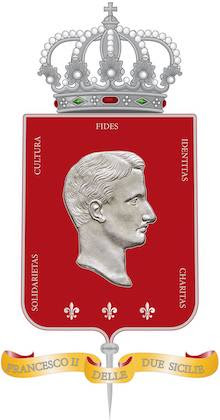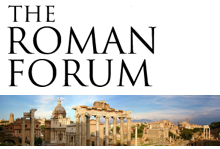Gianandrea de Antonellis’s review of Rafael Gambra’s Quello che chiamano Stato (What They Call the State) on altaterradilavoro.com is a model of intellectual engagement—lucid and deeply informed in tone and analysis alike. With scholarly precision, de Antonellis succeeds in conveying both the inner coherence of Gambra’s thought and the abiding relevance of his critique of modernity.
“Gambra was one of the first to understand the link that connected, on one hand, Marxism and idealism, and on the other, fascism and existentialism.”
From the outset, de Antonellis situates Gambra within the great ideological and philosophical struggles of the twentieth century, demonstrating how his thought bridges politics, theology, and metaphysics. Rather than treating him as a relic of reaction, the review presents Gambra as a thinker of surprising modernity—one who, without surrendering to modernism, understood its logic from within.
De Antonellis’s analysis of Gambra’s engagement with existentialism is particularly compelling. He notes that Gambra was not interested in creating a “Christian existentialism,” but rather in “utilizing certain elements of the existentialist reaction within the genuine conception of Christian philosophy.” This distinction, deftly unpacked, reveals Gambra’s originality and the subtlety of his philosophical approach.
The review also underscores Gambra’s engagement with figures such as Camus, Saint-Exupéry, Gustave Thibon, and Bertrand de Jouvenel—a constellation of authors rarely considered together, yet meaningfully connected through his synthesis of moral seriousness and political realism. De Antonellis highlights these influences with admirable clarity, drawing out the threads that link Catholic traditionalism to the broader intellectual currents of Europe.
Equally impressive is the treatment of Gambra’s Spanish traditionalism, particularly his defense of hispanidad as a spiritual and cultural category rather than a purely national one. De Antonellis rightly identifies in this notion the key to understanding Gambra’s vision of a civilization rooted in Christian order and historical continuity—an idea that feels all the more urgent in an age of disintegration and relativism.
Providing the backdrop to these pages, de Antonellis explains, is Spanish traditionalism itself, which toward the end of the book takes center stage. He points especially to four chapters: the acute reflections on patriotism and nationalism, where Gambra rejects the modern and romantic roots of the latter; the contrasting treatments of the “two federalisms”—the traditional form (more accurately called foralism) and the revolutionary, statist one that must never be confused with it; and finally, Gambra’s discussions of liberalism and his reconsideration of Spanish history. In all these reflections, traditionalism is embodied in Carlism and stands firm against the enemies of Hispanic Christendom.
The review closes on a note of moral and cultural clarity: Gambra’s critique of liberalism, nationalism, and statism, de Antonellis suggests, is not a rejection of modernity per se, but a call to recover a sane hierarchy of principles—a defense of the human person and the spiritual dimension of politics.
Beyond its careful exegesis, de Antonellis’s piece also serves as a reminder of the urgent need to make Gambra’s works available to a wider audience. Quello che chiamano Stato, like La Monarchia sociale e rappresentativa nel pensiero tradizionale (The Social and Representative Monarchy in Traditionalist Thought) before it, deserves to be translated into English. Without such translations, Anglophone readers remain deprived of one of the twentieth century’s most insightful and penetrating traditionalist philosophers—a thinker whose critiques of rationalism, secularism, and the modern state speak directly to our own cultural and political crises.
“The timeliness of Gambra’s writing is striking—it triumphantly withstands the passage of time.”
In sum, Gianandrea de Antonellis’s review is more than a summary; it is a learned meditation on the continuity of Christian civilization and the intellectual courage of one of its most faithful defenders. Thoughtful, well-structured, and spiritually alive, it honors both Gambra’s work and the tradition he sought to renew.
~ By Giovanni di Napoli, November 5th, Feast of the Holy Relics
Rafael Gambra, Quello che chiamano Stato, prefazione di Francesco Elias de Tejada, Premessa di Miguel Ayuso, Solfanelli, Chieti, 2025, pagg. 192, € 14,00










